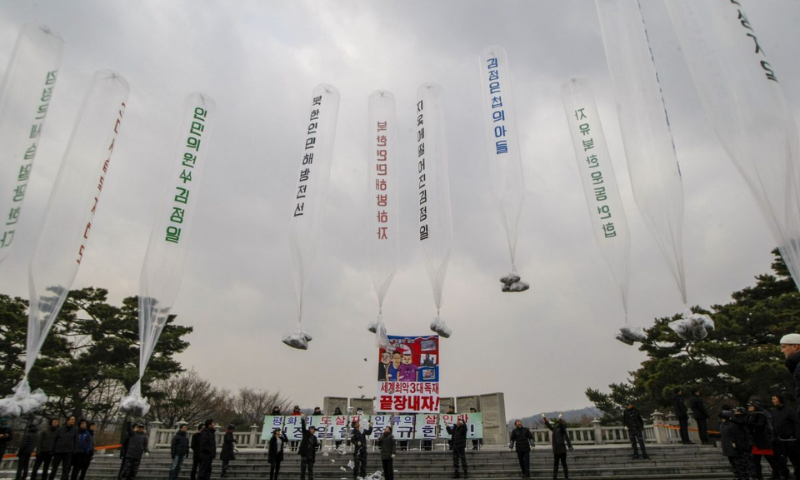SEOUL, South Korea: North Korea has once again escalated tensions with South Korea by sending balloons filled with trash, toilet paper, and suspected animal feces across the border, according to local media reports.
Seoul’s military has strongly criticized Pyongyang for these provocative actions, describing them as “low class” and a violation of international laws.
Photographs circulating in South Korean media show white balloons carrying bags of trash and what appears to be excrement, prompting concerns about the safety of residents near the border. Seoul’s Joint Chiefs of Staff have urged citizens to avoid outdoor activities and report any suspicious objects to the authorities.
The North’s decision to launch these balloons comes after its warning over the weekend to shower border areas with “mounds of wastepaper and filth” as a form of punishment against Seoul. South Korean activists have previously sent balloons carrying anti-regime propaganda leaflets and money into North Korea, a move that has long angered Pyongyang.
In response to North Korea’s actions, South Korea conducted military drills and issued alerts to residents, emphasizing the need for caution. Pyongyang has threatened further retaliation, signaling a potential escalation of tensions between the two Koreas.
Analysts suggest that North Korea’s unconventional approach, including sending items like animal feces, aims to send a stern message to South Korea to halt its propaganda activities. Despite ongoing efforts to improve inter-Korean relations, provocations like these highlight the enduring hostility between the two sides.
Meanwhile, North Korea’s failed attempt to launch a second spy satellite and its subsequent criticism of South Korea’s response underscore the fragile security situation on the Korean Peninsula. As tensions persist, there are growing concerns about the potential for further provocations and their implications for regional stability.























